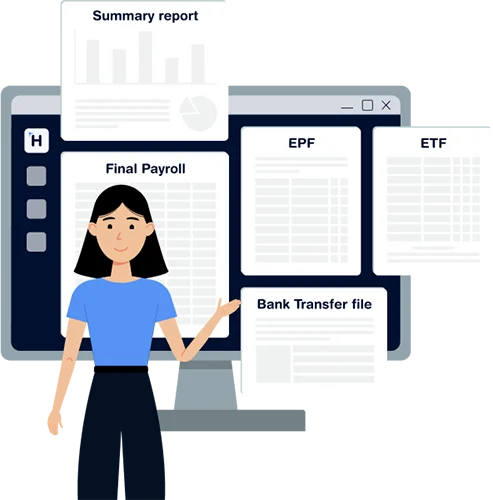Sri Lanka finds itself at a critical moment, facing the grip of an economic crisis that has brought hardship to its workforce. Amid these challenges, the proposed Employment Law Bill appears as a source of hope, offering the possibility of changing how work functions, attracting investment, and reviving the economy. However, beyond the first optimism, a closer look reveals a complex set of realities and worries that could stand in the way of the Employment Bill’s full success. In this article, we explore the various concerns and intricate factors that raise doubts about whether the Employment Bill can truly achieve its intended goals.
1. Navigating Economic Realities:
In Sri Lanka, the Employment Bill arrives at a time when the economy is facing challenges, like a shrinking GDP and more people being without jobs. Let’s take a closer look at one change proposed in the bill – the way gratuity payments work. Currently, employees need to work for 5 years to get gratuity, but the new rule suggests they only need to work for 6 months to be eligible. This change means employers might need to pay more in gratuity, which could put pressure on them, especially when many employees are leaving the country. So, even though the bill aims to improve things, we need to think about whether it matches the urgent economic issues we’re dealing with.
2. The Balancing Act:
The core aim of the Employment Bill is to find a balance between what workers need and what businesses need. For instance, the idea of having more flexible work hours and different types of employment might seem good for companies, but it could also make workers feel less secure in their jobs and potentially lead to unfair treatment. Additionally, when we talk about things like sick leave or time off for new mothers, the suggestion to relax these rules could mean that workers might have a harder time taking care of themselves and their families. All of this is happening as the government tries to make the rules for businesses more relaxed to attract investment, but there’s a worry that this might end up hurting the well-being and respect of the workers.
3. Vulnerable Groups in Focus:
While the Employment Bill aims to make things fairer for everyone and improve gender equality, the current uncertain economy raises a question. Many women have regular jobs, and if the new rules make work more flexible, it might be harder for them to keep their jobs and be treated fairly. For instance, when it comes to things like maternity leave, the changes could make it less secure for women in their jobs. Even though the changes are meant to help, there’s a worry that they could end up making things tougher for those who are already struggling for fairness. This might make the differences between diverse groups of people even bigger.
4. Weakening the Voice of Workers:
As we look closely at the proposed changes outlined in the upcoming Employment Act, a significant concern arises about the potential impact on workers’ collective voices. The inclusion of provisions that prohibit unfair labor practices by trade unions might change the dynamics of worker representation. This has the potential to weaken the influence of trade unions, which historically have been a stronghold for workers’ rights. Moreover, the requirement for majority consent of trade union members before starting a strike, along with other related provisions, could limit the effectiveness of collective actions. These changes could make it challenging for workers to collectively advocate for their interests and better working conditions. It’s crucial to understand the implications of these amendments on the strength of workers’ voices and the role of trade unions in safeguarding their rights.
5. Beyond Labor Laws: Encompassing Solutions:
Looking beyond just labor laws is crucial for finding comprehensive solutions to our challenges. Take the proposed change in how overtime hours and payments are calculated as an example. In the past, overtime might have been calculated differently in various workplaces, leading to confusion and unfairness. Now, there’s a plan to introduce a uniform system for calculating overtime, which could make things clearer and fairer for everyone. While this might simplify things on one level, it might not fully solve the bigger issues industries are facing. It’s like improving the rooms in a house without fixing its weak foundation – the changes might not last if the core problems remain. Critics say that while labor reforms are important, we also need to focus on overall economic issues. Only thinking about labor changes could mean missing the chance to build a strong foundation for lasting job growth, a robust social safety net, and steady economic improvement.
Conclusion:
The Employment Law Bill stands as a crucial moment for Sri Lanka to reshape its labor dynamics and drive economic growth. However, the road to resounding success is paved with practical complexities and concerns that demand scrutiny. The weight of the ongoing economic challenges, the potential impact on workers’ lives, the vulnerability of marginalized groups, the possible weakening of collective bargaining, and the need for comprehensive economic solutions emphasize the seriousness of the task. By addressing these issues directly, Sri Lanka can forge a path towards a more balanced and enduring future, ensuring that the goals of the Employment Bill lead to tangible benefits for both its workforce and economy.

